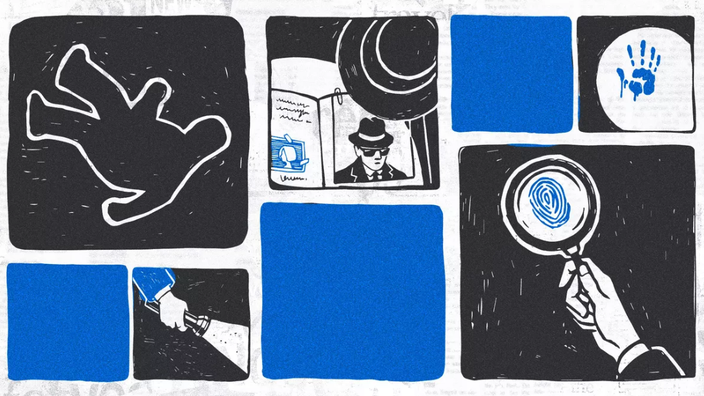Anne Berest was 24 years old when in 2003 her mother received
an anonymous postcard in the mailbox of her house in the Parisian
banlieue .
The Opéra Garnier was listed on the front and four names on the back: those of Berest's great-grandparents—Ephraim and Emma—and great-uncles—Noémie and Jaqcques—of Berest on her maternal side.
All of them, victims of the Holocaust, had died in Auschwitz in 1942. The family was as surprised as it was scared.
Berest spoke to EL PAÍS by phone and recalled her feelings: "The postcard had something so terrifying that we kept it in a drawer and didn't think about it until 15 years later."
The author of the autobiographical book
La postal
(translated into Spanish by Lumen) starts from this unsigned letter to begin the search for its issuer.
Constructing the story like a detective novel —a private detective and a criminologist collaborate with her—, the protagonist inquires about the past of her ancestors with the help of her mother, Lélia, to reconstruct her story and solve the problem. riddle of her
But unlike a crime novelist, who already knows the outcome of the story, Berest had no idea how her investigation would end, nor was he sure he could solve it for readers.
It took her four years to find the author and she only unravels the riddle at the end of the book.
"Real life gave me a writing lesson," she says.
More information
Auschwitz, the struggle to preserve the memory of the horror
—Why did you decide to resume research after 15 years?
—In 2018 I already had a six-year-old daughter.
On Wednesdays I used to eat with my mother.
She one day asked her: 'Grandma, are we Jewish?'
When my mother said yes, she made a worried face and said: 'It's just that they don't like Jews very much at school.'
My mother told me and she asked me to talk to my daughter, but I was unable to, she was blocked.
Instead, the memory of the postcard came back to me, a resurrected image from the past.
And suddenly I became obsessed with finding the author.
Photo of the Rabinovitches with Emma's family in Lodz, Poland in 1924. The author's grandmother, Myriam, is the rightmost girl sitting on the stairs.
The book —which Berest calls a “true novel” because it tells the true story of his family— first delves into the lives of his great-grandparents, the Rabinovitches, who fled pre-revolutionary Russia with their first daughter, Myriam ( the author's grandmother), newborn.
The Rabinovitch patriarch, Nachman (Ephraim's father), had gathered his family while they were still living near Moscow to warn them that they had to leave, Jews were not welcome.
“My children, listen to me well.
It stinks of shit, ”she sentenced in
Yiddish
.
Nachman's premonition is a constant throughout the work.
He comes back to haunt Anne when she finds out about her daughter's interaction at school and when the school principal is unmoved by her words.
The author speaks with astonishment of the revisionist and denialist theses that are circulating in French territory and that publicly materialized in September 2021, when a new far-right candidate, Éric Zémmour, dared to say that Marshal Pétain, who was in charge of the Vichy Regime when France was occupied by the Nazis, had tried to save the Jews and claimed that the French gendarmes had not collaborated with the deportations.
"Does France still stink of shit today?"
—I don't know if it stinks of shit, but I can tell you that it doesn't smell good.
I am quite pessimistic.
Every day in France there are anti-Semitic acts, as well as racist acts.
I believe that the future holds for us very hard years of economic crisis and the Jewish community has always been the scapegoat in these circumstances, although we are not the only ones, immigrants will also be.
The work of historical memory is fragile and it came very late (in 1995 with the speech of the then president Jacques Chirac).
We should reinforce it.
Noémie Rabinovitch, the great-aunt of the author, Anne Berest.
The photo appears on the cover of 'La postal'.
After briefly settling in Latvia, Poland and Palestine, Emma and Ephraim settled in Paris with their three children.
However, as the Second World War approached, little by little they saw how Nachman's omen followed them: their rights were reduced, their assets were requisitioned, until, in the midst of the Nazi occupation, the youngest children were taken first —Jacques and Noémie—and then to the mature couple —Ephraim and Emma.
Myriam, the author's eldest daughter and grandmother, was saved by having married a year earlier.
In addition to solving the mystery of the postcard, the autofiction novel answers the question that causes an internal conflict for the author: what is it like to be a Jew without having set foot in a synagogue, without ever having celebrated the Sabbath?
In the second part of the book, titled
Memories of a Jewish Girl Without a Synagogue
, Anne lists the times in her life that she heard the word "Jew," and how she understood—from the silences more than the words—that it belonged to that community.
The author responds with a joke: “To be a Jew is to spend your life wondering what it is to be a Jew.
But I explain it more extensively in the book.
In one of the lightest moments of the novel, Anne is eating with her friend Gérard, who is also Jewish, and he recalls that when he was little, at all the parties he went to with his parents, the closest family friends Old men had numbers tattooed on their arms.
When he asked her mother why, she replied with a lie: "They are telephone numbers, and since they are older people they need to have them tattooed so they don't forget."
Berest explains that the Holocaust is no longer taboo, but that it took time for Jewish families to be able to talk about it: “My grandmother Myriam never said a word about it.
A silence linked to the traumas of war reigned in most of the victims.
They were afraid it would happen again.
Many of them changed their last name,
French author Anne Berest.Lumen
The postcard
has been a publishing success in France, where more than 150,000 copies have been sold.
Berest attributes this to the fact that the novel is written in simple language: “I tried not to have to look up any words in the dictionary.
I had a young reader in mind, between adolescence and adulthood.”
He clarifies that this popularity was totally unexpected: “My mother told me before the novel was published that if it didn't sell it wouldn't be because it was bad, but because people were already tired of so much history of the Shoah.
But for me it was a duty to tell it.
The older I get, the more I realize that the war was yesterday."
Subscribe to continue reading
Read without limits
Keep reading
I'm already a subscriber

/cloudfront-eu-central-1.images.arcpublishing.com/prisa/MFRCLNK3INBVXIJPGDVQ5AJSRU.png)

/cloudfront-eu-central-1.images.arcpublishing.com/prisa/ZBAZWEFVJFEQRG7B6GD2NYTRI4.jpg)
/cloudfront-eu-central-1.images.arcpublishing.com/prisa/QMMLZZZRT5DBBKJ3BCMUK42HQQ.jpg)
/cloudfront-eu-central-1.images.arcpublishing.com/prisa/XGPL4VVJANCUHGSVIZQFNBNCRI.JPG)









